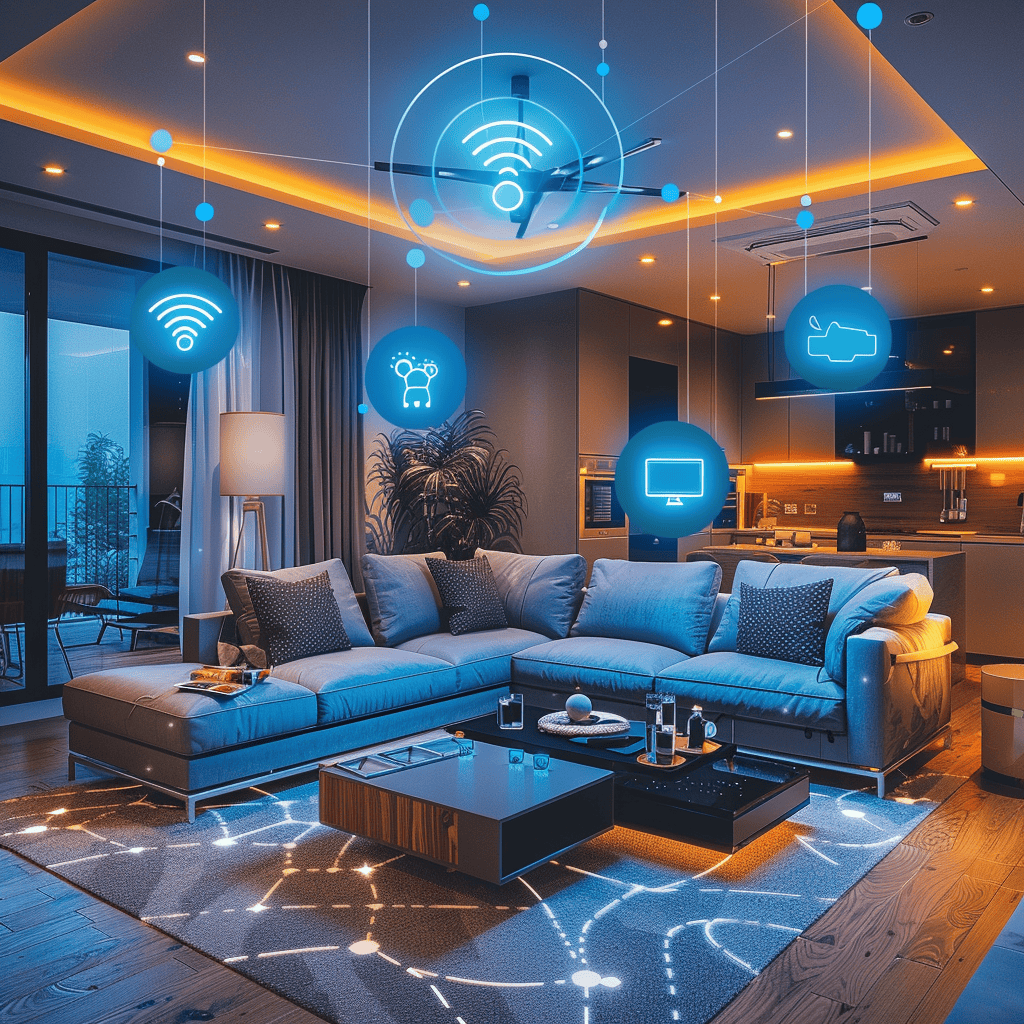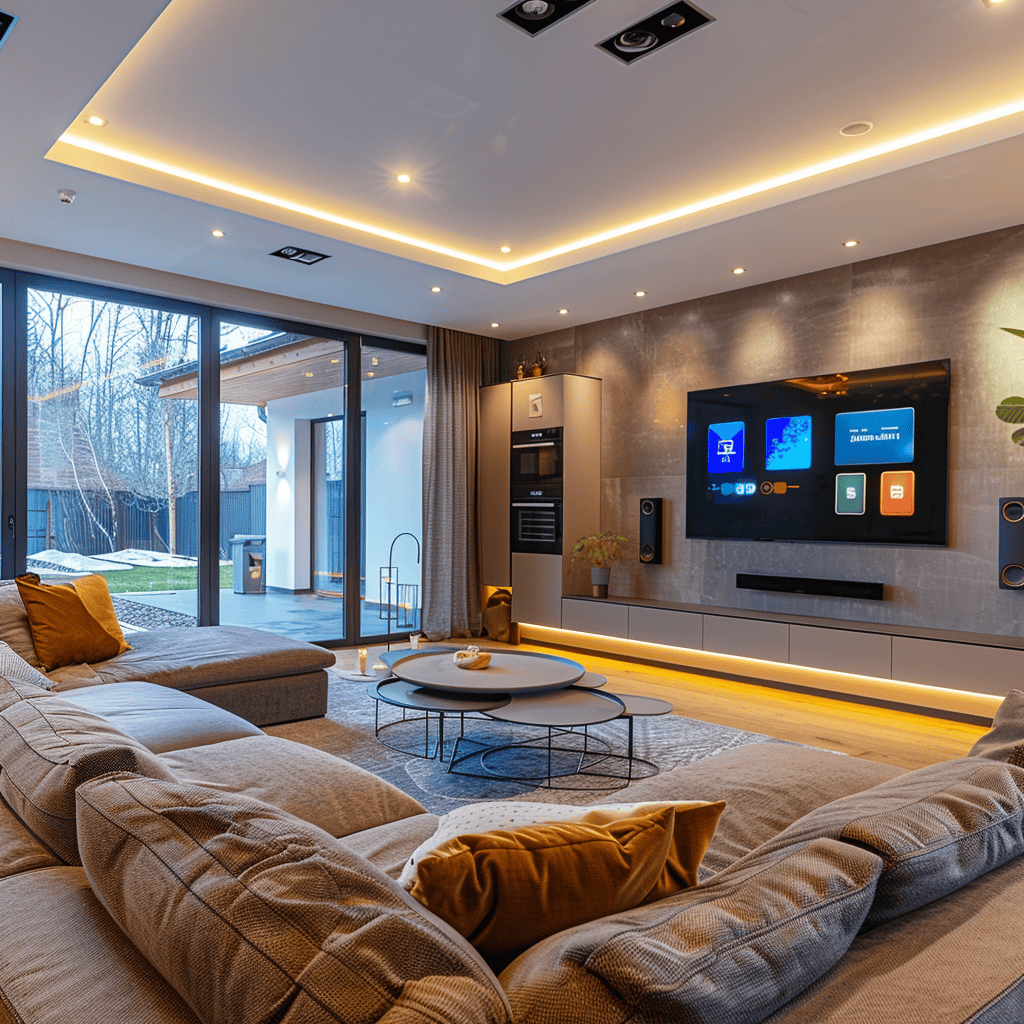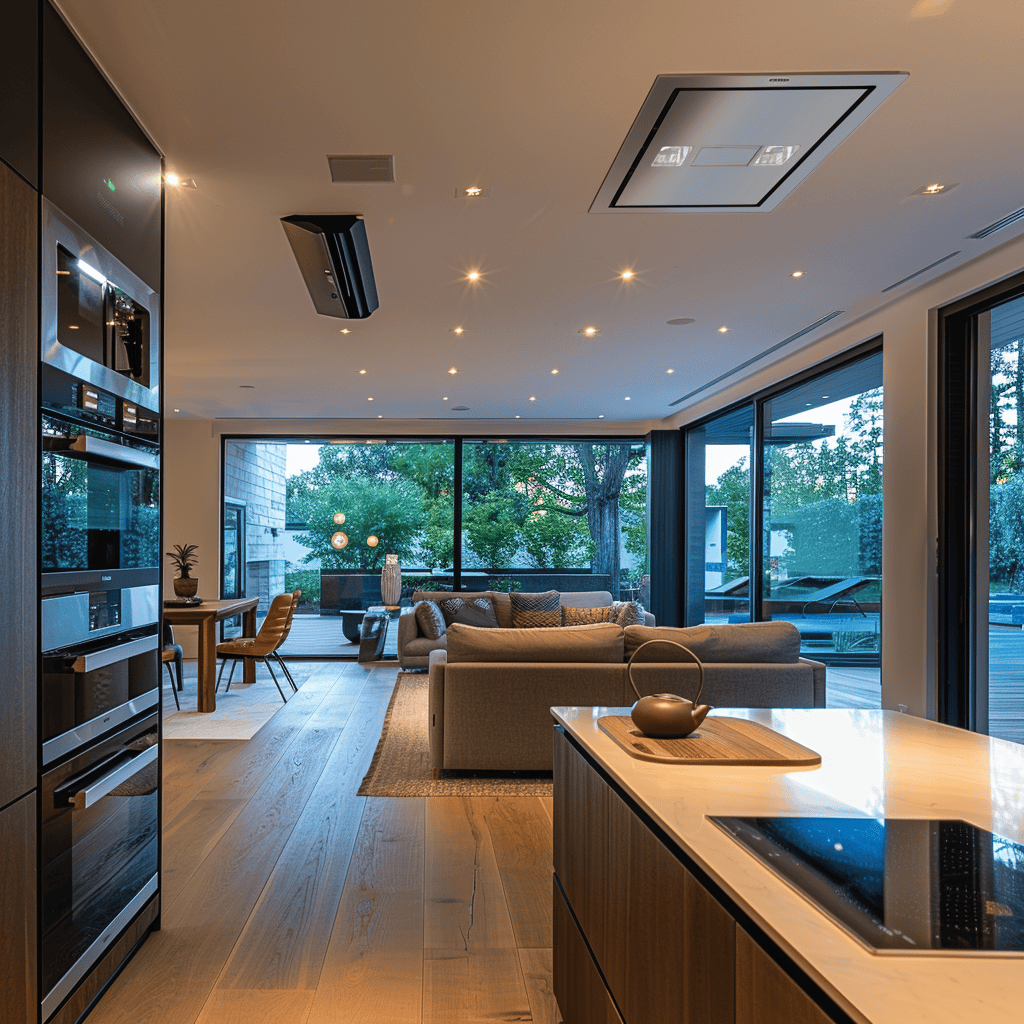Imagine living in a truly smart home where every aspect of your environment is controllable with just a tap on your smartphone or a voice command to your virtual assistant. Smart home automation has not only revolutionized our daily interactions with our living spaces by enhancing convenience, comfort, and efficiency but also raised important questions about the security and privacy of these automated systems.
The Multifaceted Benefits of Smart Home Automation
Before addressing the concerns surrounding security and privacy, it’s important to highlight the numerous advantages smart home automation brings to our daily lives.
Streamlined Daily Operations Through Enhanced Control
One of the most significant benefits of smart home automation is the convenience it provides. With devices such as Amazon Alexa or Google Assistant, you can effortlessly manage your lighting, climate control, security systems, and home entertainment. This capability allows for the creation of personalized schedules, automates repetitive tasks, and enables remote adjustments to your home settings.

Boosted Energy Efficiency and Cost Savings
Smart home systems allow for precise monitoring and management of energy usage. Smart thermostats can automatically adjust to your daily patterns to maintain optimal temperatures, thus conserving energy and reducing utility costs. Additionally, remote control of lighting helps in reducing electricity usage by allowing you to turn off unnecessary lights or adjust them to energy-saving levels.
Enhanced Security and Peace of Mind
Smart home automation significantly boosts home security by providing real-time notifications and alerts about suspicious activities or when someone approaches your property. The integration of remote monitoring and control of security cameras and smart locks ensures that you have comprehensive control over the safety of your home, offering substantial peace of mind.
Improved Comfort and Customized Entertainment Experiences
The automation system can transform your home into a haven of comfort and entertainment. For example, preset scenes can adjust your home’s lighting, audio, and temperature to create perfect environments for different occasions like movie nights or social gatherings, enhancing the overall home experience.
Understanding the Security Risks
Despite the benefits, it’s crucial to be aware of the security risks associated with smart home automation. As homes become more connected, they also become potential targets for cyber threats.
Vulnerabilities in Smart Device Security
The connectivity of smart devices to the Internet can make them susceptible to attacks. Hackers may exploit inadequately secured devices to disable security features, manipulate controls, or access sensitive personal information.

Risks of Unauthorized Network Access
An unsecured Wi-Fi network can serve as an entry point for cybercriminals to access and control smart home devices. To mitigate this risk, it’s vital to secure your network with strong passwords and encryption.
Data Privacy Concerns with Cloud Storage
Dependence on cloud services for data storage and processing in smart homes raises significant privacy issues. To protect your personal information, opt for smart home providers who prioritize robust encryption and data security.
Striking a Balance Between Convenience and Security
To navigate the balance between convenience and security in smart home automation, consider the following strategies:

Implement Strong Security Protocols
Regular updates, strong passwords, two-factor authentication, and up-to-date security patches are essential to safeguard your smart home devices and network.
Segregate Network Connections
Separating your smart home devices onto a different network from your primary one can prevent potential breaches from spreading across your entire digital ecosystem.
Choose Secure Devices and Platforms
Prioritize devices and platforms known for strong security measures and compliance with industry standards, ensuring they offer encryption and frequent security updates.
Maintain Privacy in Device Setup
Avoid using personal information for usernames or passwords and routinely audit permissions granted to third-party applications to limit unnecessary data access.
Consult Security Experts
Engage with professionals specializing in smart home automation and security to get tailored advice on protecting your smart devices and network effectively.
FAQs on Smart Home Automation: Balancing Convenience and Security
What is smart home automation?
Smart home automation involves using advanced technology to control various aspects of your home environment, such as lighting, climate, security systems, and entertainment, through devices connected via the internet. These systems can be controlled remotely using smartphones, tablets, or voice commands.
How does smart home automation enhance daily convenience?
Smart home systems streamline everyday tasks by allowing users to automate routine activities and remotely control home devices. This includes adjusting thermostats, turning lights on or off, managing security alarms, and even starting appliances like washing machines or coffee makers—all from a smartphone or through voice commands.
What are the security risks associated with smart home automation?
The primary security risks include vulnerability to hacking, unauthorized access, and the potential for data interception. These risks stem from unsecured devices, weak network security, or inadequate data protection measures by device manufacturers or service providers.
How can I improve the security of my smart home system?
To enhance your smart home’s security, ensure your network is secured with strong, unique passwords and consider using a separate network for your smart devices. Regularly update all devices to the latest firmware to protect against known vulnerabilities. Enable two-factor authentication for added security, and choose products from reputable manufacturers that prioritize security.
Can smart home automation help reduce energy costs?
Yes, smart home automation can significantly reduce energy consumption and lower utility bills. Smart thermostats adjust heating and cooling based on your schedule and preferences, smart lights can be programmed to turn off when not needed, and other smart appliances can operate at the most energy-efficient times.
Are there ways to protect my privacy with smart home devices?
To protect your privacy, use devices from reputable brands that comply with strong privacy laws and offer robust encryption. Limit the personal information you share, regularly review and adjust privacy settings, and be cautious with devices that store or transmit sensitive data. Also, monitor which third-party services have access to your smart home systems and revoke any unnecessary permissions.
What should I consider when choosing smart home devices?
When selecting smart home devices, consider their compatibility with other devices you already own, the level of customer support provided by the manufacturer, and the security features they offer. Also, look at user reviews and product ratings to gauge reliability and performance. Prioritize devices that support standard technologies and protocols for easier integration and better security.
Conclusion
While smart home automation presents immense potential for enhancing daily living through convenience and efficiency, it is imperative to stay vigilant about security. By adopting robust security practices and choosing reliable technologies, you can enjoy the benefits of a smart home while ensuring your privacy and safety remain intact.

